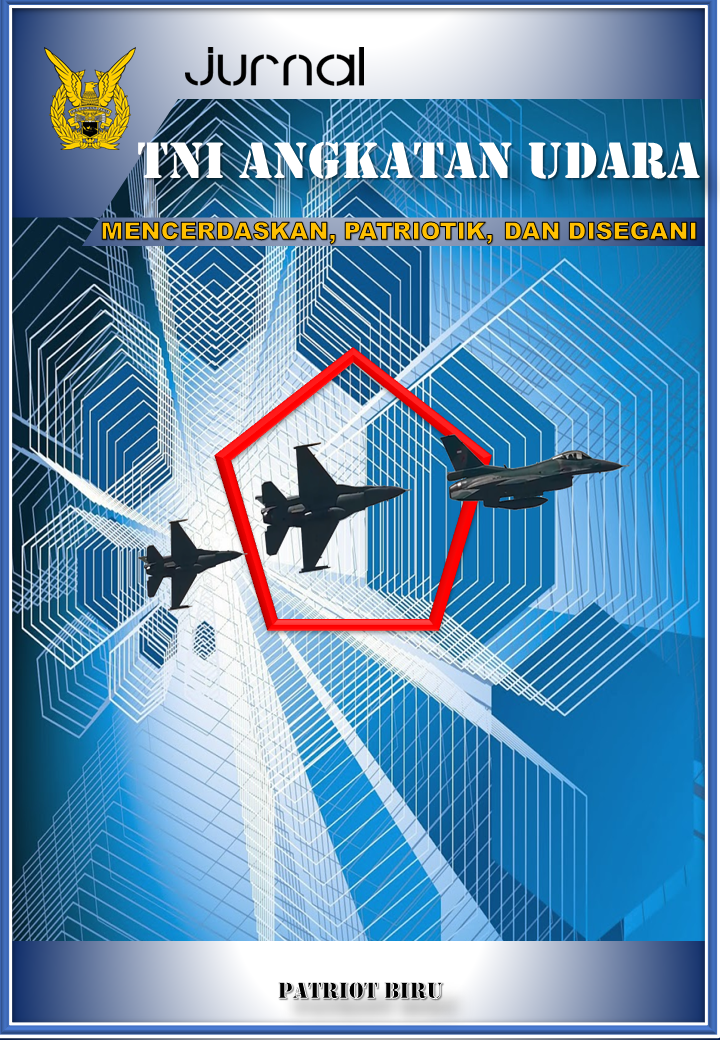1. INNOVATION: ROBUST AIR POWER CAPABLE OF CONTINUAL MARITIME OPERATIONS AND REINFORCED NATIONAL CYBER STRATEGY TO PROTECT NATIONAL SECURITY
DOI:
https://doi.org/10.62828/jpb.v2i2.60Kata Kunci:
Continual Maritime Operation, Spillover of conflict, Strategic Competition, Joint, interagenc, Intergovernmental, Multinational (JIIM), Anti Access-Area Denial (A2-AD), chokepoint, Sea Lines of Communication (SEALOC), Indo Pacific scenarios; Volatilit, Uncertaint, Complexity, Ambiguity (VUCA); cyber strategy, cyberculture and cyber mentalityAbstrak
Clausewitz‘s thought that the character of war is influenced by technology is still relevant to the
Strategic Competition (Great Power Competition). The competition and the new character of war could
impact Indonesia through the Sino-India and the Taiwan scenario both in peacetime and wartime. Any
attempt to use force against U.S. friends and allies would propel the US to use conventional military
power and even a limited nuclear.1 Therefore it will impact the population and create two challenges
for Indonesia. The challenge predominantly comes from the sea. The first challenge is the spillover
of the competition both in peacetime and wartime. The spillover in peacetime is the claim by China
over Indonesia’s territory and EEZ in the South China Sea (SCS). While in wartime is the predictable
flood of refugees due to the Sino-India scenario into Indonesian waters; and the expansion of conflict
to Indonesia’s territory in the SCS due to the Taiwan scenario.. The second challenge is the risk of
cyber-based hybrid war. This essay argues,with the objective the spillovers are manageable and the
cyberthreats are denied, hence, Indonesia should innovate by building up robust air power capable of
continual maritime operations, and reinforcing its National Cyber Strategy to protect national security.





